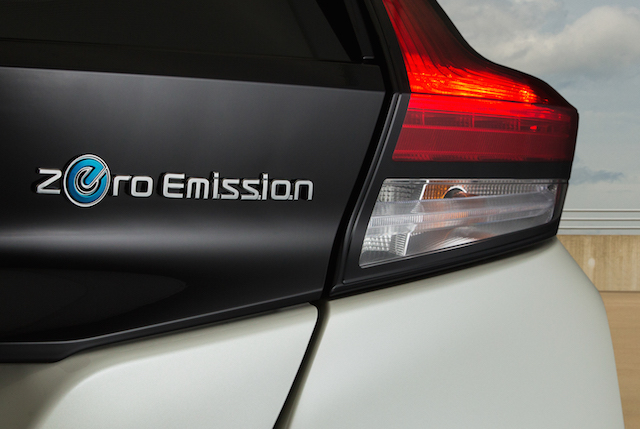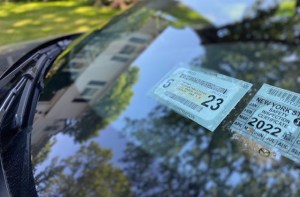If you’re a Massachusetts resident that wants to buy a new gas-powered car, the clock is ticking. The state has announced its plans to ban the sale of gas-powered vehicles by 2035.
It is the first state to follow California, which announced the same policy in September. Several Europeans countries have already instituted a similar initiative.
The policy is part of the state’s plan to achieve Net Zero greenhouse gas emissions by 2050. Light-duty vehicles (passenger cars) are responsible for roughly 27% of statewide emissions.
The state believes it needs to intervene for electric vehicles (EVs) to become more widely adapted. It claims that without market intervention, there will be fewer than 500,000 EVs in the state by 2030. But reducing emissions 45% below 1990 levels would require twice as many EVs. (The state’s Net Zero plan specifies an even more ambitious plan of reducing at least 85% of gross emissions, or 90% below 1990 levels by 2050 statewide.)
The state notes that as of today, EVs are not as accessible as traditional cars because of their price point. This problem should be mitigated in the coming years. As technology improves, they will become more readily available and prices drop. In fact, a recent report claimed that with battery pack prices continuing to fall, automakers should be able to sell mass market EVs at the same price as comparable gas-powered vehicles as soon as 2023.
Massachusetts also rightly acknowledges that it needs to invest in EV charging infrastructure. Most EV owners charge their cars at home, but those living in apartments or multi-family homes likely won’t have access to a charging source at home and will need to rely on public charging stations.
Given an average vehicle lifetime of less than 15 years, implementing this regulation would likely result in a near complete transition of passengers cars from gas-powered to electric by 2050. Of course, the rule only applies to new cars. Used gas-powered vehicles will still be available for purchase.
California and Massachusetts may not be alone for long. In an October report by the New Jersey Department of Environmental Protection, Governor Phil Murphy’s administration recommended that by 2035, all new cars sold be zero emissions. Furthermore, President-elect Joe Biden has signaled his push for cleaner transportation. His list of Day One Executive Actions includes, “developing rigorous new fuel economy standards aimed at ensuring 100% of new sales for light- and medium-duty vehicles will be electrified.” And in year one, his administration will support the deployment of 500,000 new public charging stations and restore the full electric vehicle tax credit.
Regardless of what you think of these particular policies, the benefits of a complete shift to EVs is undeniable. Massachusetts estimates that if fully implemented, by 2050 the policy will prevent 27 deaths and 1,700 missed days of work (due to cardiovascular and respiratory illness), save $295 million in health costs and create nearly 4,000 jobs to support vehicle electrification and charging infrastructure.
What do you think of this policy? Are you excited about the future of electric vehicles? Let us know in the comments.
Visit AAA’s Electric Vehicle platform for more information on these cars of the future.
8 Thoughts on “Massachusetts to Ban Sale of New Gas-Powered Cars by 2035”
Leave A Comment
Comments are subject to moderation and may or may not be published at the editor’s discretion. Only comments that are relevant to the article and add value to the Your AAA community will be considered. Comments may be edited for clarity and length.















A January 2022 major snowstorm in Virginia left hundreds of motorists stranded in freezing conditions on Interstate 95, some of them for more than 24 hours, creating a massive traffic jam. Of the gas powered vehicles that ran out of gas, every one of them were able to drive off after getting a gallon or two of gas. ALL the dead EV’s had to be towed off the interstate!
I drive up and down the east coast regularly. I like to keep my stops to a minimum. I have watched people sitting and waiting for their EV vehicles to charge so that they can continue with their trip. I don’t intend to spend addition hours stopping to wait for my vehicle to recharge. (if there is space available and you don’t have to wait in line.) The state is over reaching in this case. I’ll be forced to find a way to buy a vehicle out of state. No doubt the State will find a way to punish those who do financially. I’ll more than likely need to find a different state to retire in. One last thought. As weather patterns seem to flow west to east, exactly how is it the State intends to keep other state’s air out of Massachusetts?
The state is trying to eliminate recreational activities on the the water. They do not want people to go boating or fishing by 2050, to save 27 lives. that’s is really looking forward to an overcrowded world. That is only getting rid of forests to build more houses, apartments, etc. You know trees and plants make oxygen for us to breath. Good move Massachusetts.
I would consider getting an electric car today, but the driving range is inadequate for my purposes; and I have no intention of searching desperately for an available charging station, somewhere along the highway, and then IF I find one, waiting an hour while my car recharges enough to make it to my destination – probably after dark, because of the delay. Give me a battery which can take me 400 miles on a charge, WITH the heater or A/C running – and an affordable price tag – and I’ll consider it. Until then, I’ll be driving a hybrid.
This is supposed to save 27 lives in Massachusetts. Is that a typo? I don’t like the government dictating to me what type of powered car I can drive. I believe in clean air and water but the media and environmentalists have blown this out of proportion. There will always be cyclical changes in our environment.
Hi Rose, thanks for commenting. Yes, the state estimates this new policy could save up to 27 lives per year due to a decline in pollution, which can cause cardiovascular and respiratory illness.
Not so fast, no one is talking about the emissions from the power plants to produce electric.
It takes oil to produce electricity. Where is the improvement and at what cost. What will it cost to recharge each electric vehicle vs cost of a gallon of gasoline. Additionally it supposedly creates new jobs, what about the jobs it eliminates? Would like to see the overall COST(that is every detail regarding changing over to electric) has anyone broken down the details including the cost to recycle batteries. Producing a battery requires gasoline to create the battery pack and also mining for additional lead. Isn’t lead a hazardous material and what will it cost to recycle lead? How do you mine lead without oil? What is the one for one cost exchange and how many years to re-coop the difference.